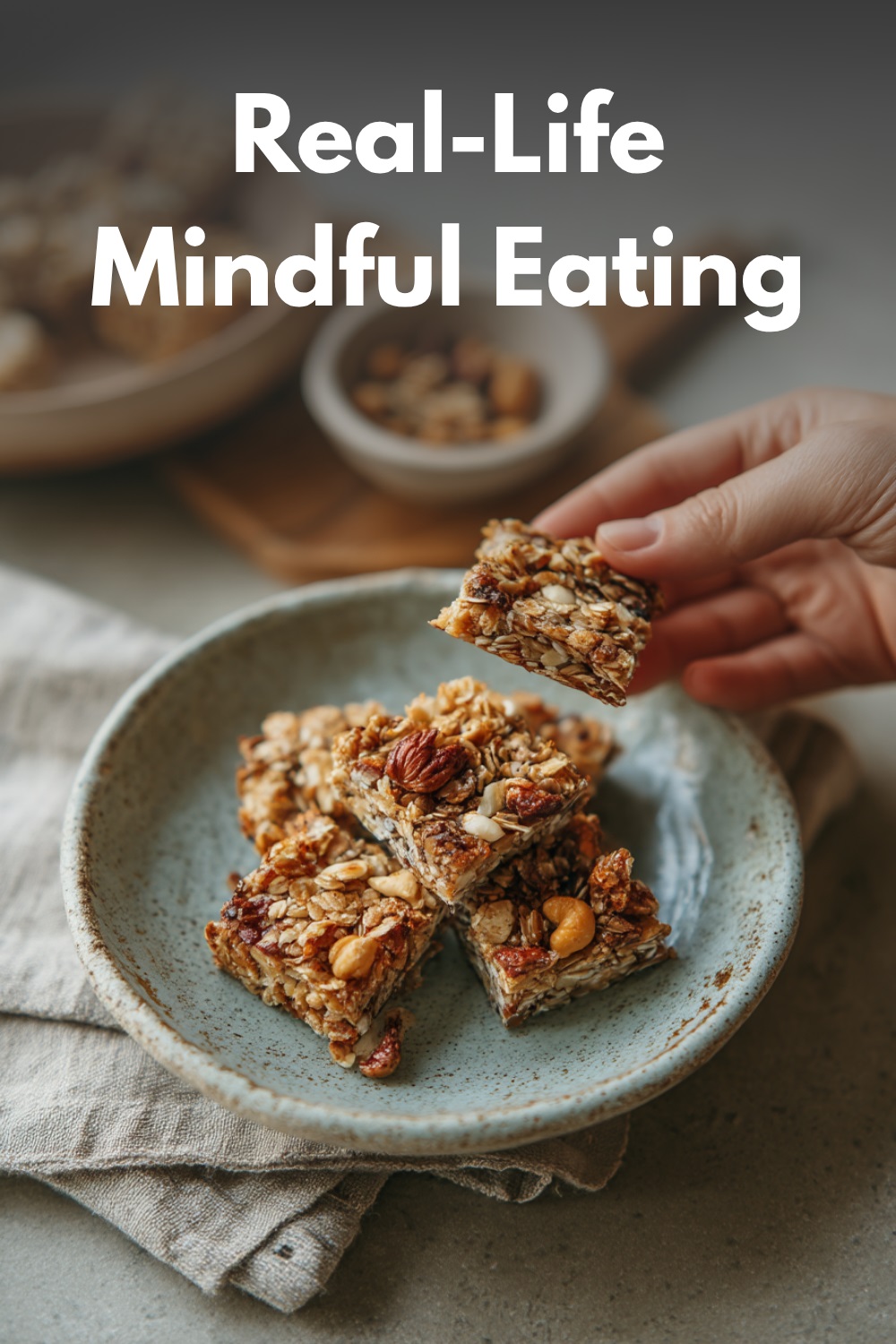When people hear “mindful eating,” they often picture something intense.
Eyes closed. Deep breaths. Maybe even journaling about every bite.
That’s not what this is.
You can eat more mindfully without making it a whole production. No meditation cushion required.
This post is about simple things you can do to pay better attention to how you eat – without overcomplicating it.
1. Pause Before You Bite
Before your first bite, pause for three seconds.
That’s it.
Ask yourself:
- Am I actually hungry?
- Is this what I want or need right now?
You don’t need to write it down or analyze it. Just notice.
Then eat.
2. Don’t Multi-Task the Whole Time
You don’t have to eat in silence or stare at a wall.
Just avoid full autopilot.
Try this: eat the first few bites without your phone or TV. No pressure to make it the whole meal.
You’ll often notice more flavor, more satisfaction, and a clearer sense of when you’ve had enough.
3. Pay Attention to the First Half of the Meal
The start of a meal is where most of the satisfaction happens.
After a while, you’re just finishing out of habit.
Halfway through, pause for a second.
Ask: “Do I still want more?” or “Am I just finishing this because it’s here?”
No judgment. Just notice.
4. Notice When the Food Stops Being Satisfying
Every meal has a point where the taste and satisfaction level drops.
You don’t need to stop eating at that moment. But it helps to know when it happens.
That awareness gives you more control and helps prevent that too-full, regretful feeling.
5. Mindfulness Is Not Guilt
This one’s important.
Mindful eating is not about judging your choices or shaming yourself.
It’s just about noticing what you’re doing while you’re doing it.
If you’re beating yourself up for eating something, that’s not mindfulness – that’s criticism.
6. Start With One Meal or Snack
Don’t try to overhaul your whole day.
Pick one meal or one snack to practice.
Could be lunch at your desk. Could be your evening snack. Doesn’t matter.
Small, low-pressure moments add up.

7. Let It Be Simple
Mindful eating doesn’t mean eating slowly, perfectly, or peacefully.
It just means you’re paying attention.
No journaling. No meditation. No mood lighting.
Just you, your food, and a bit more awareness than usual.
Final Thought
This isn’t about doing things the “right” way. It’s about doing things with a bit more intention.
If food feels chaotic, fast, or disconnected, mindful eating can help.
And it doesn’t need to be deep or spiritual. It just needs to be real.
That’s enough.

